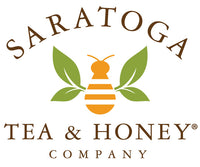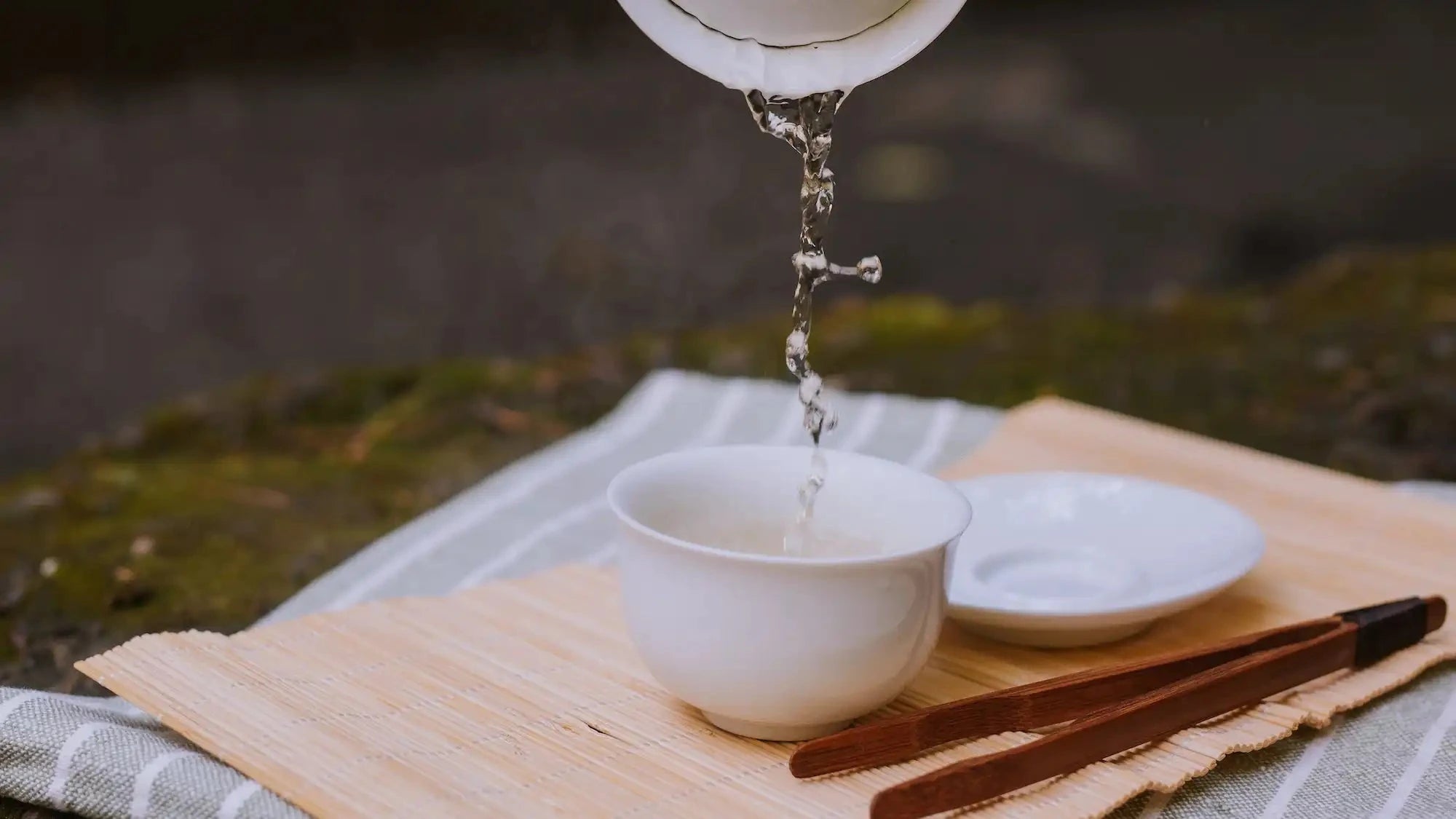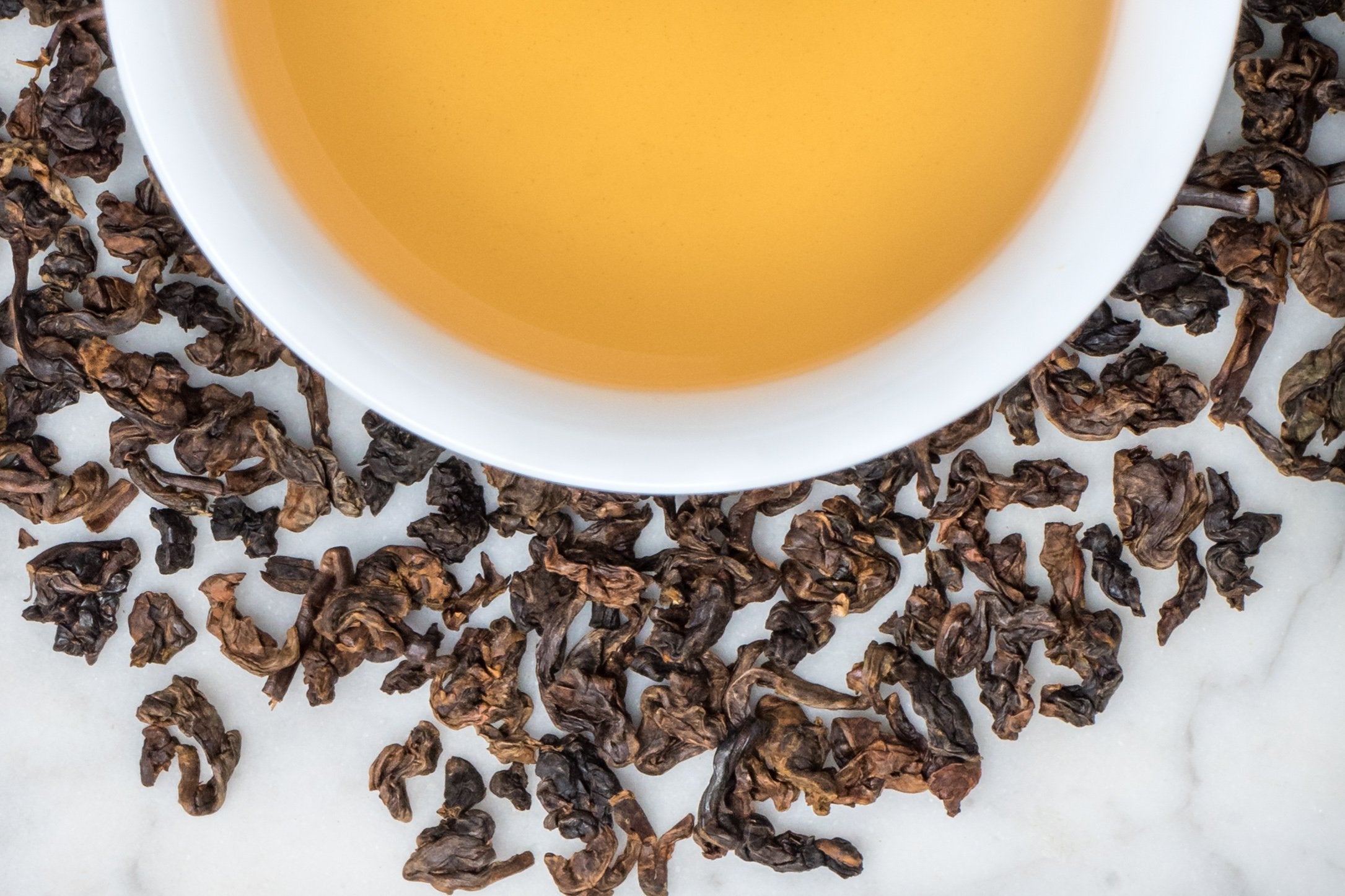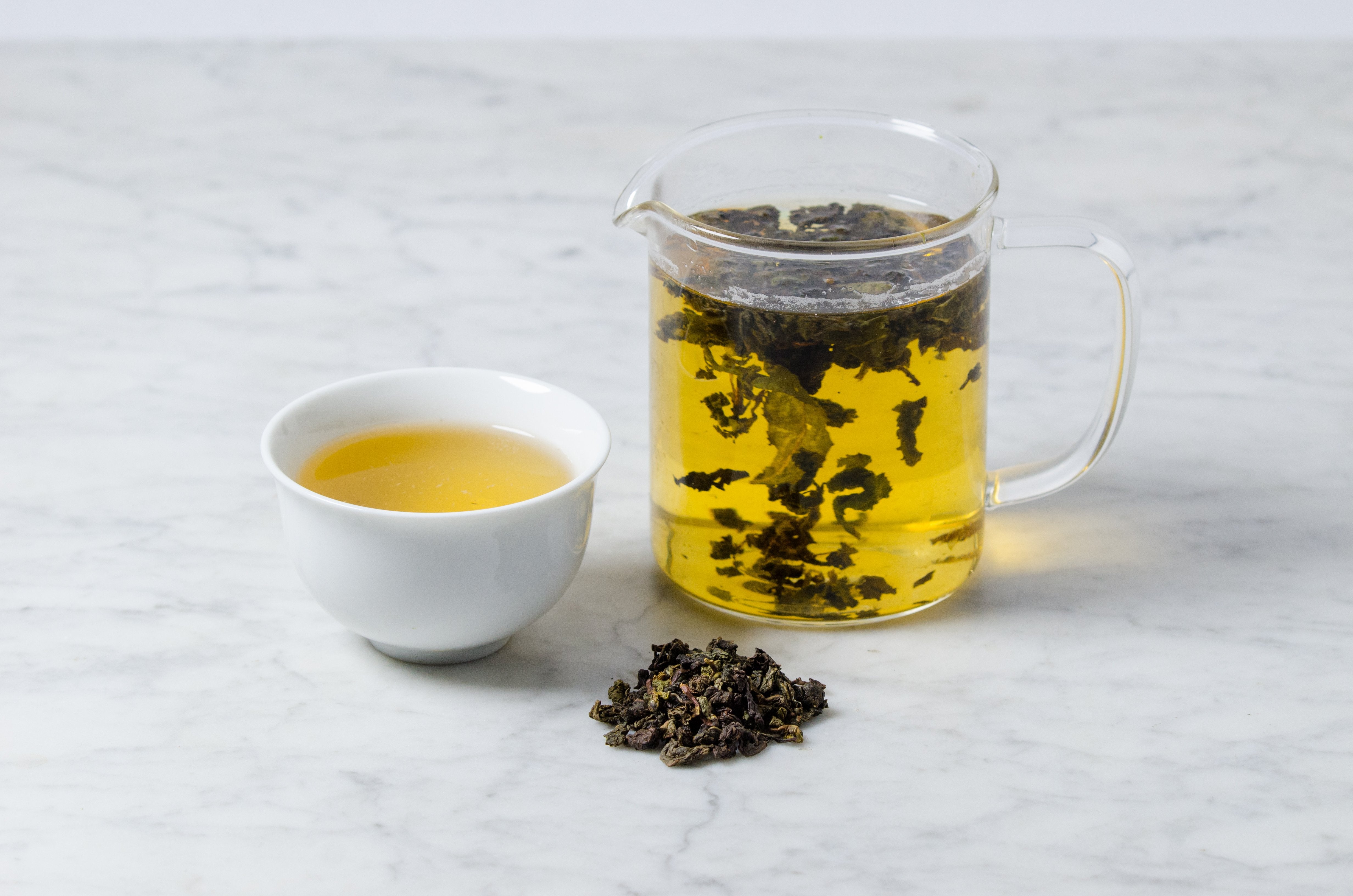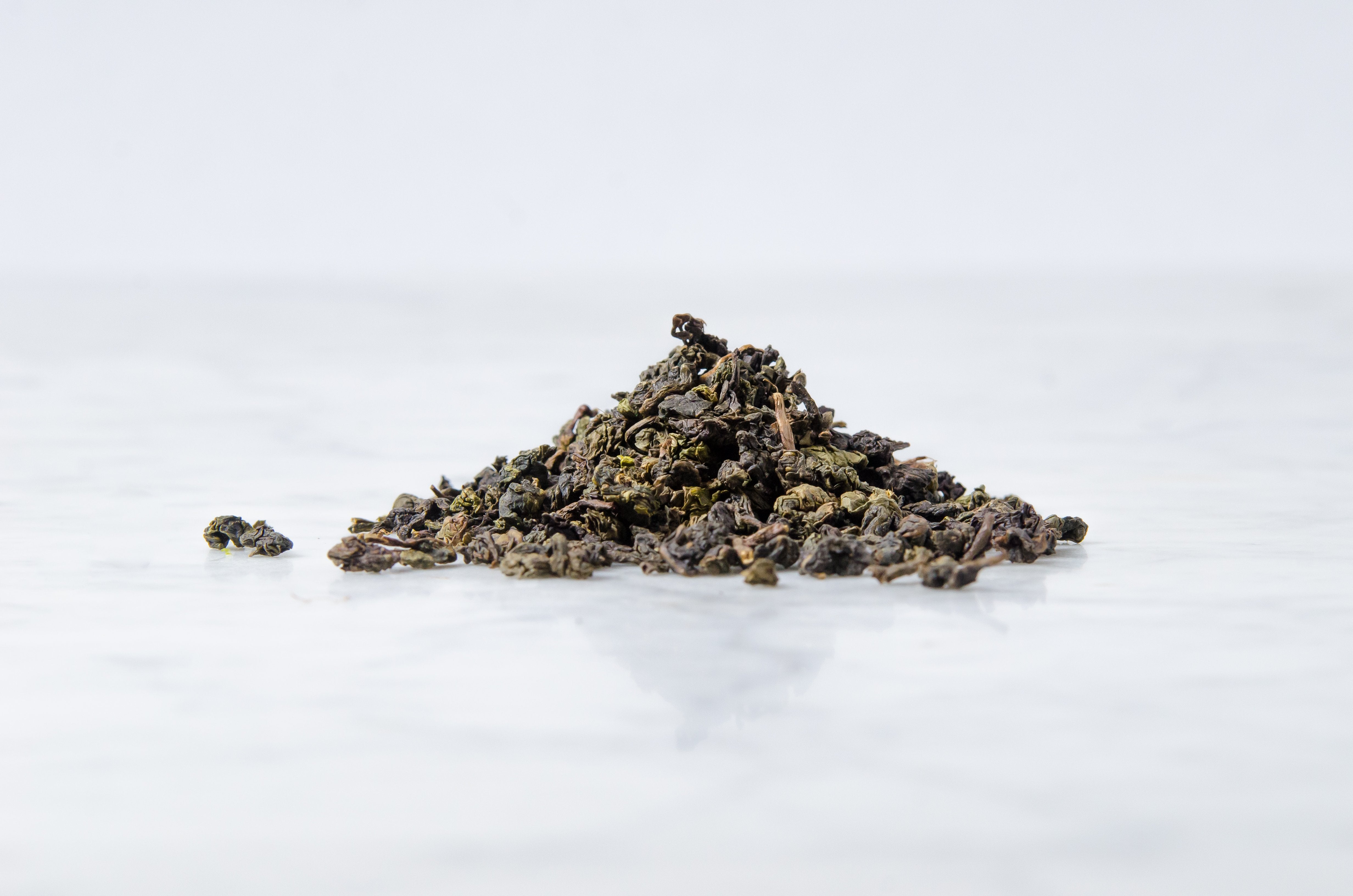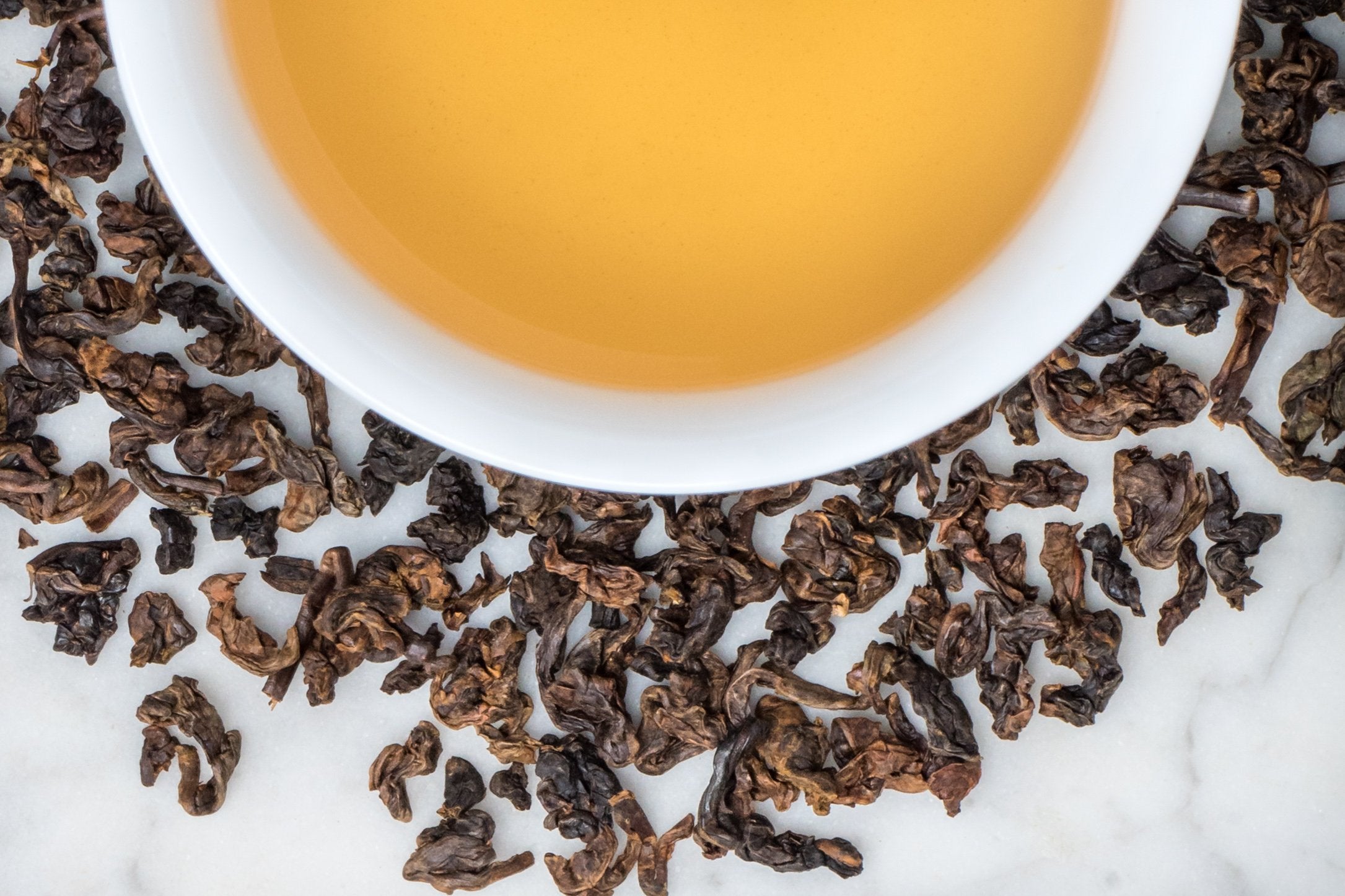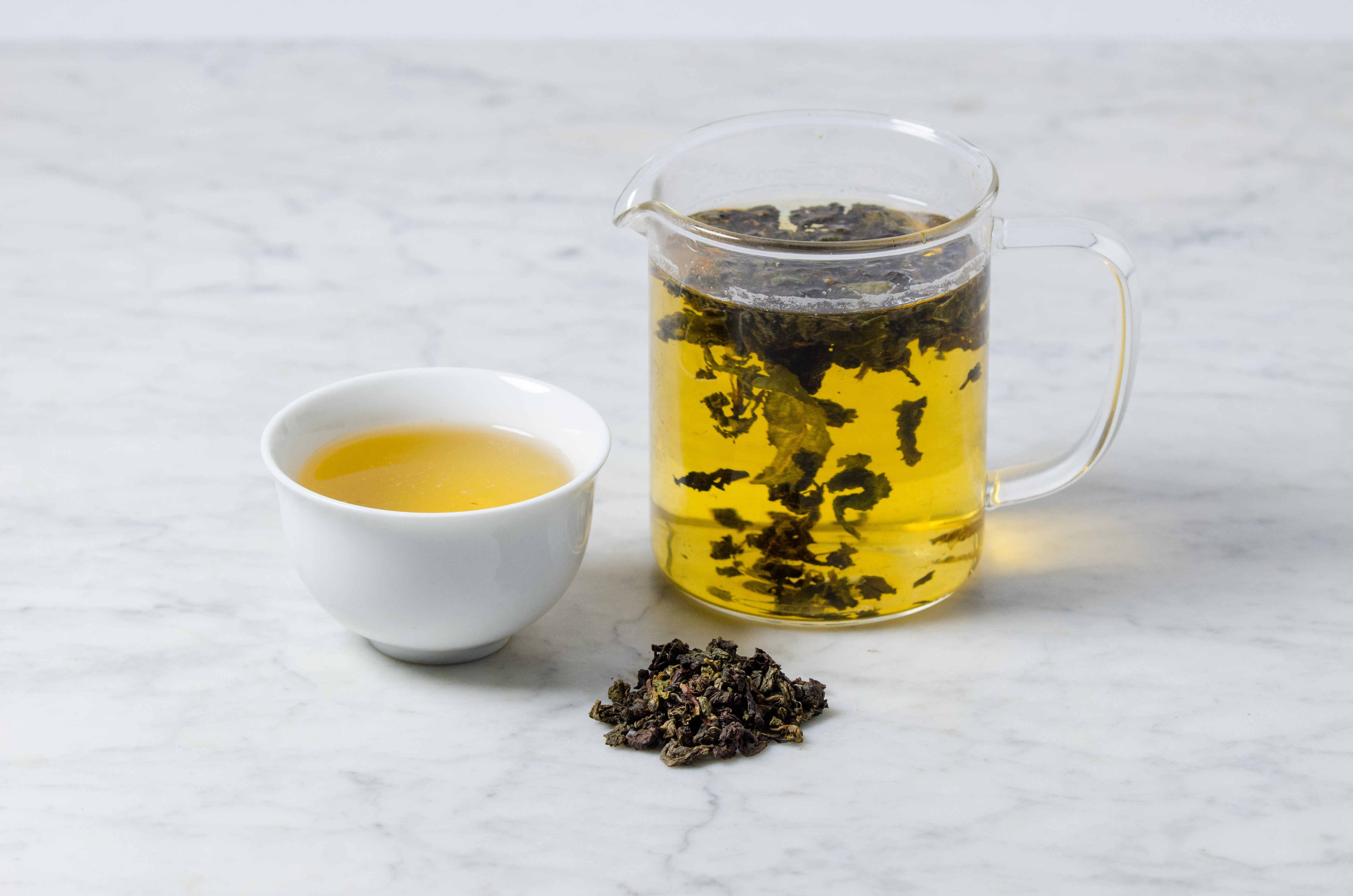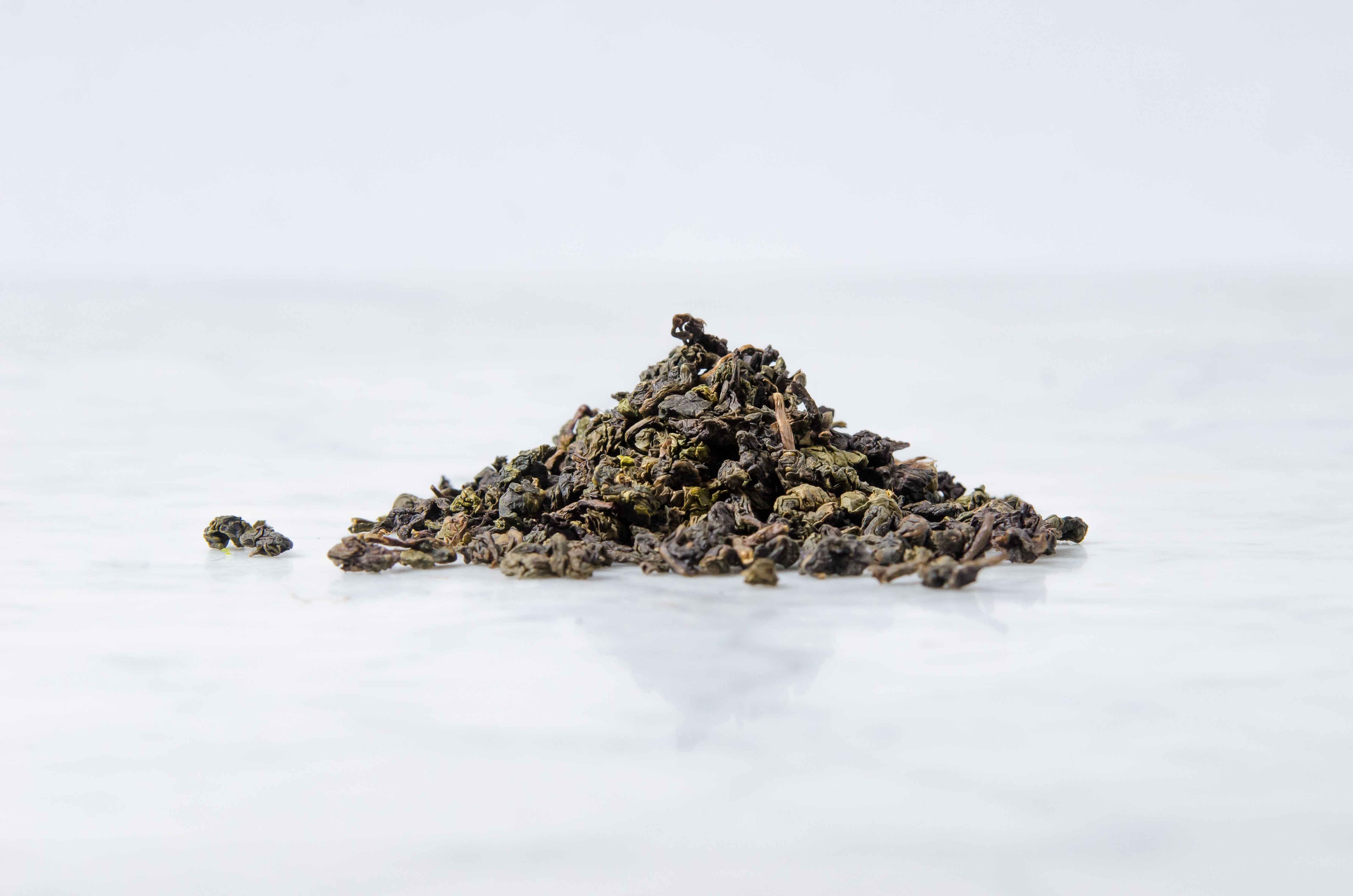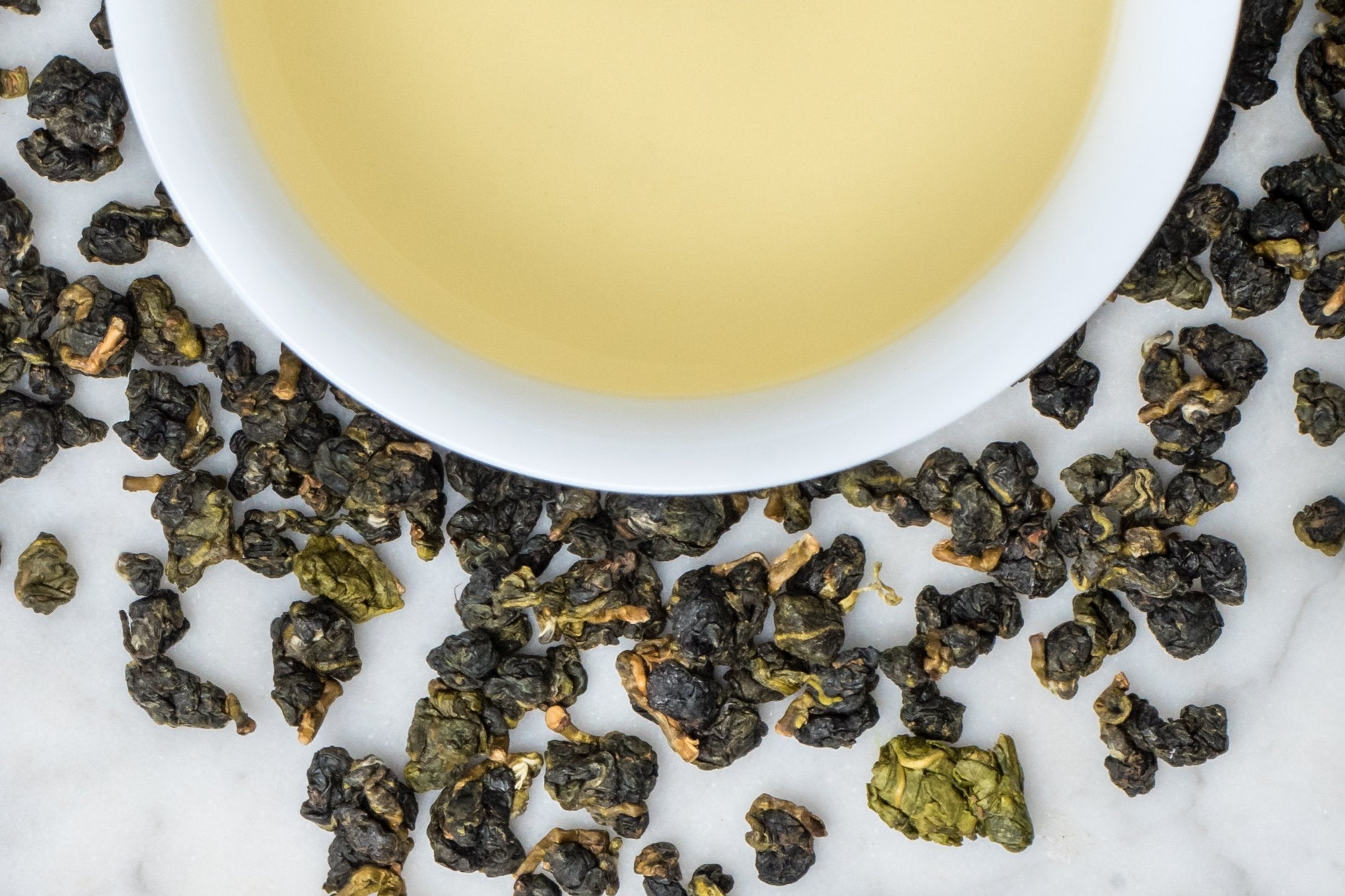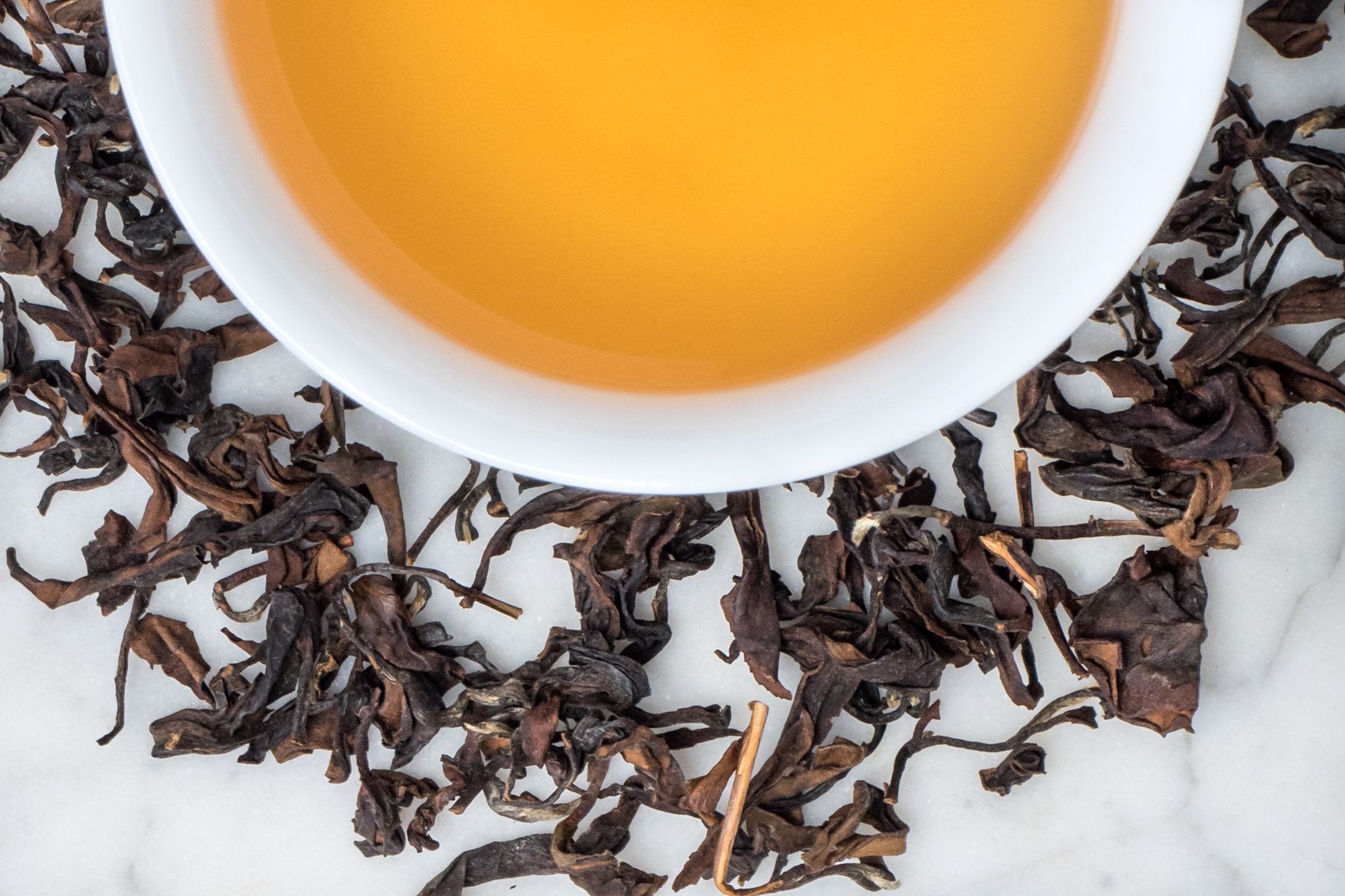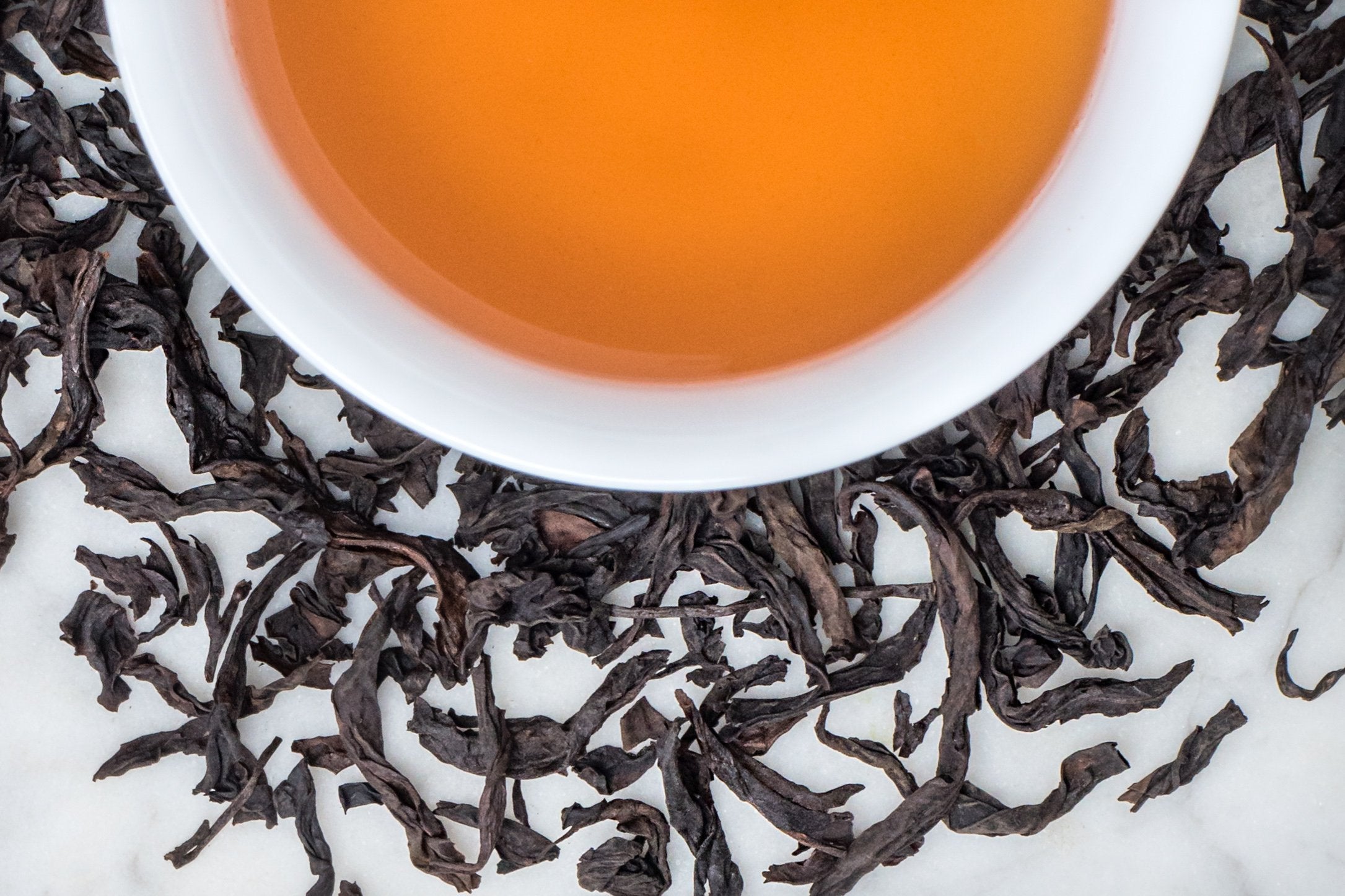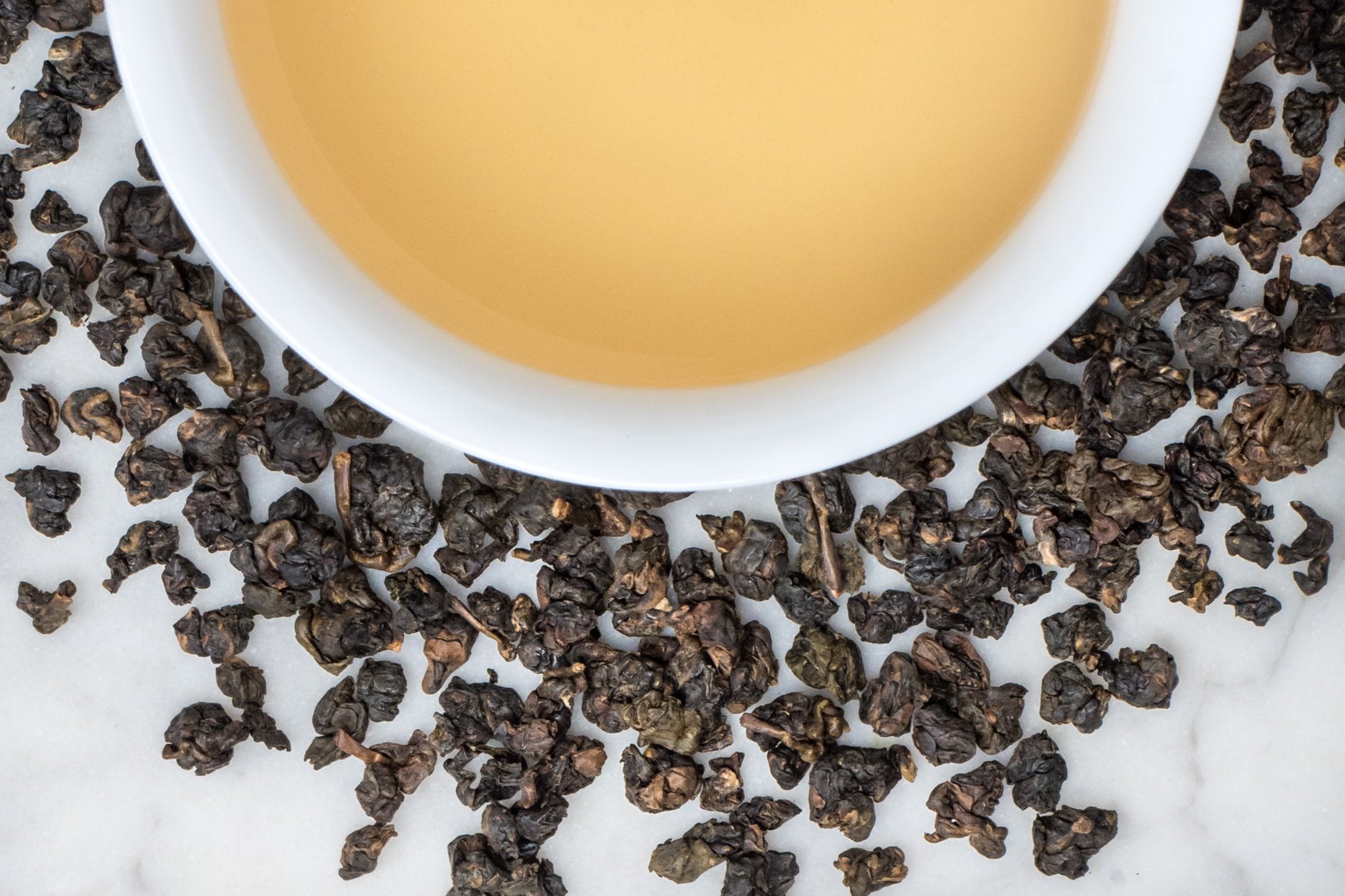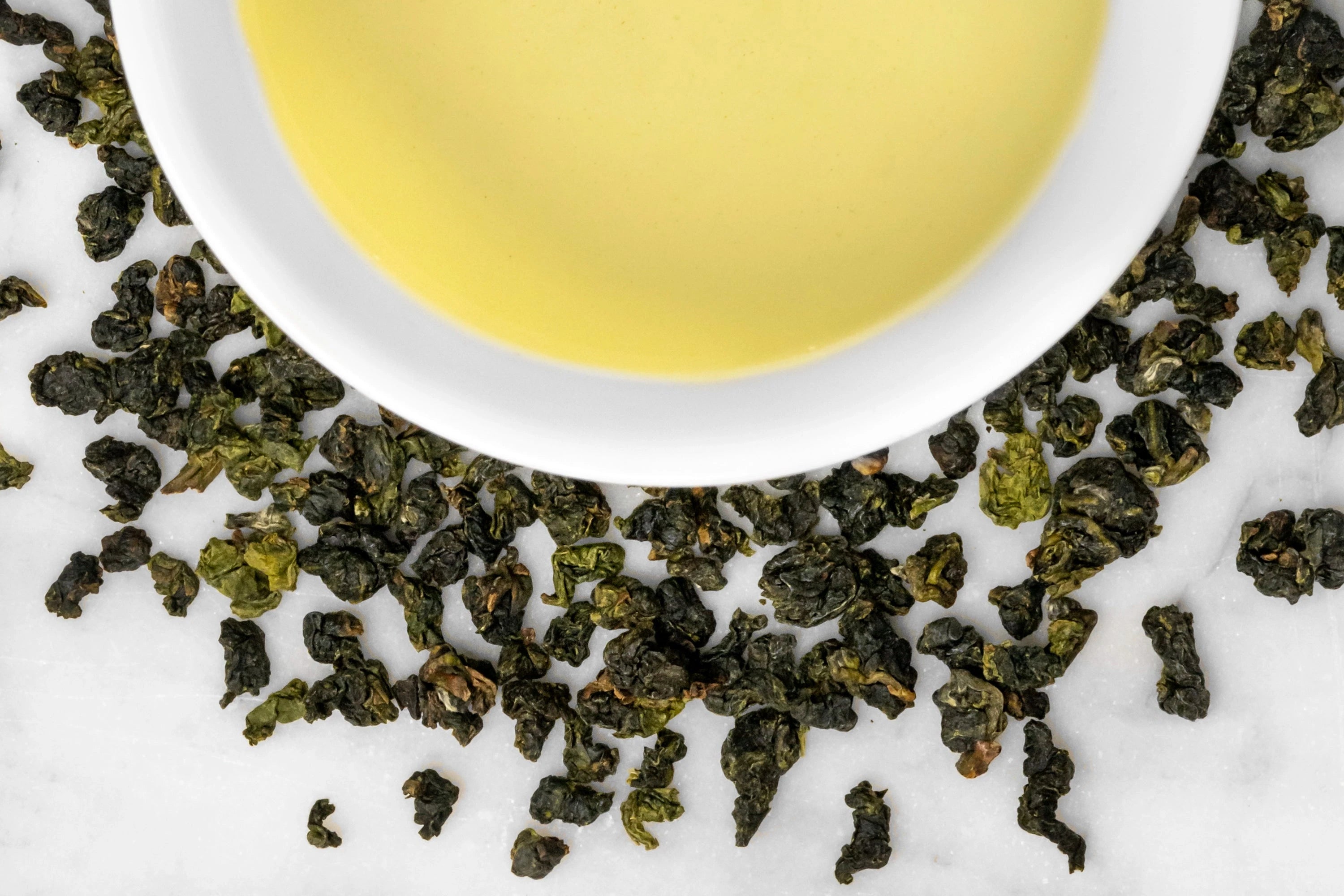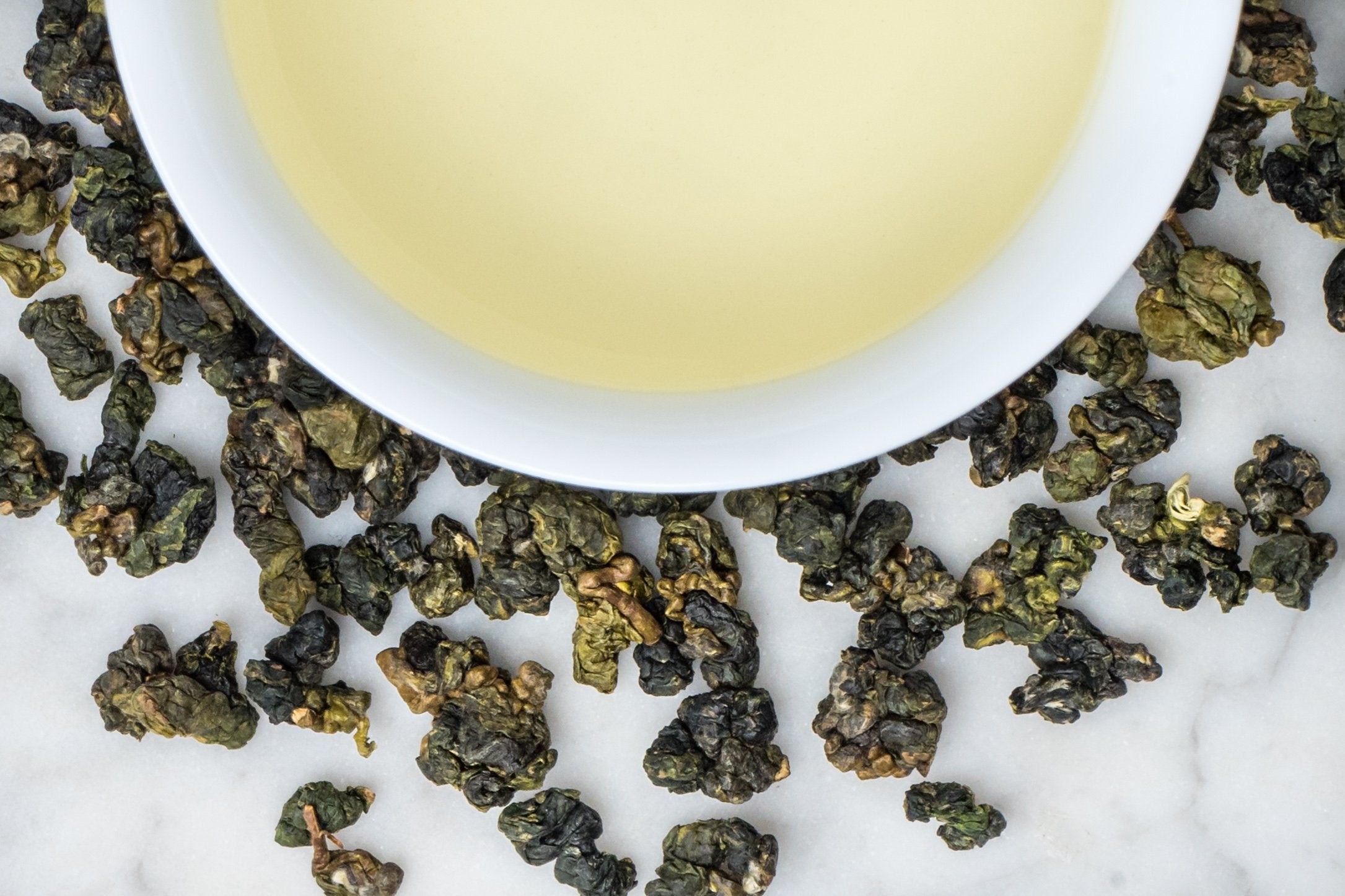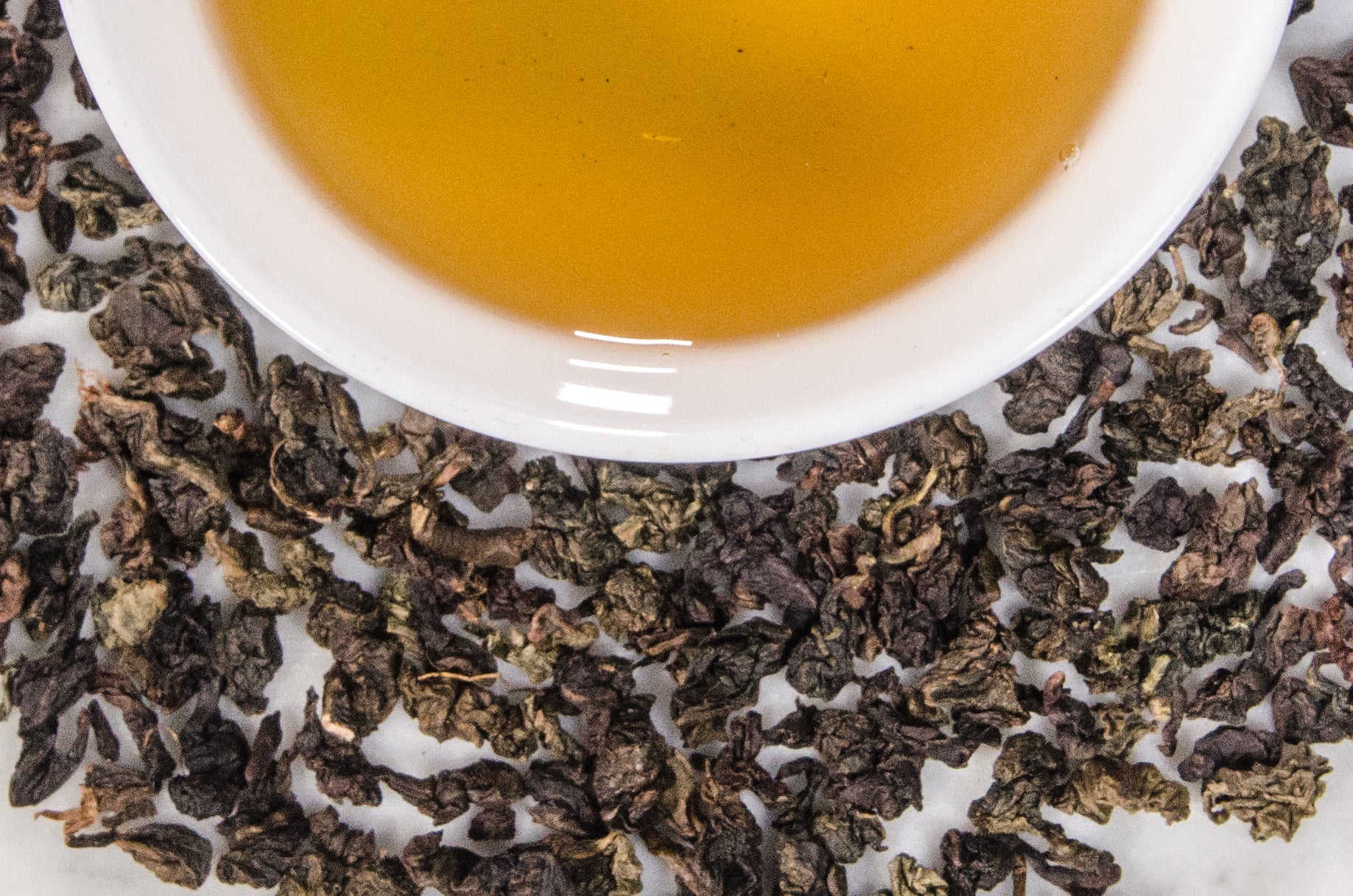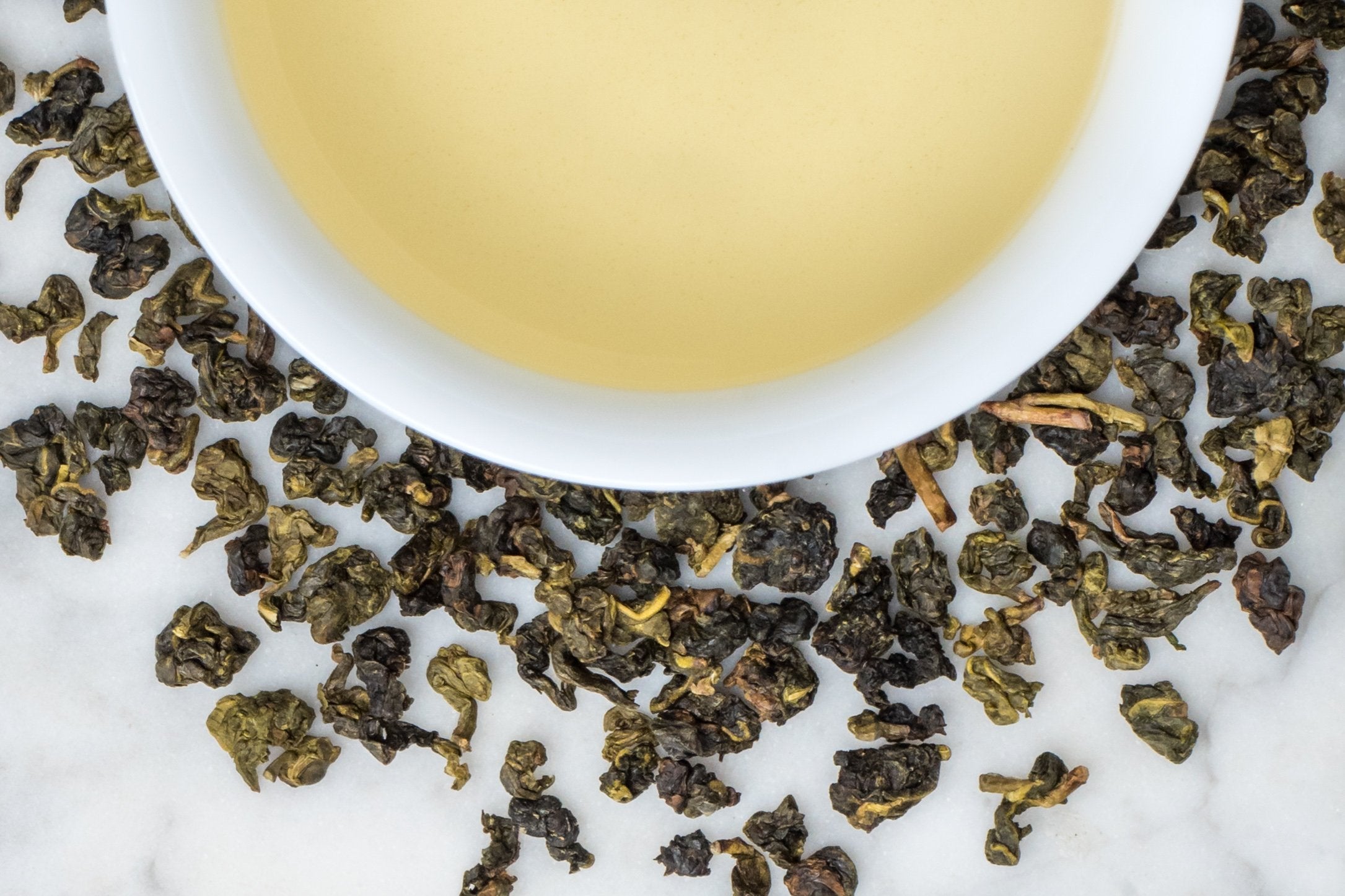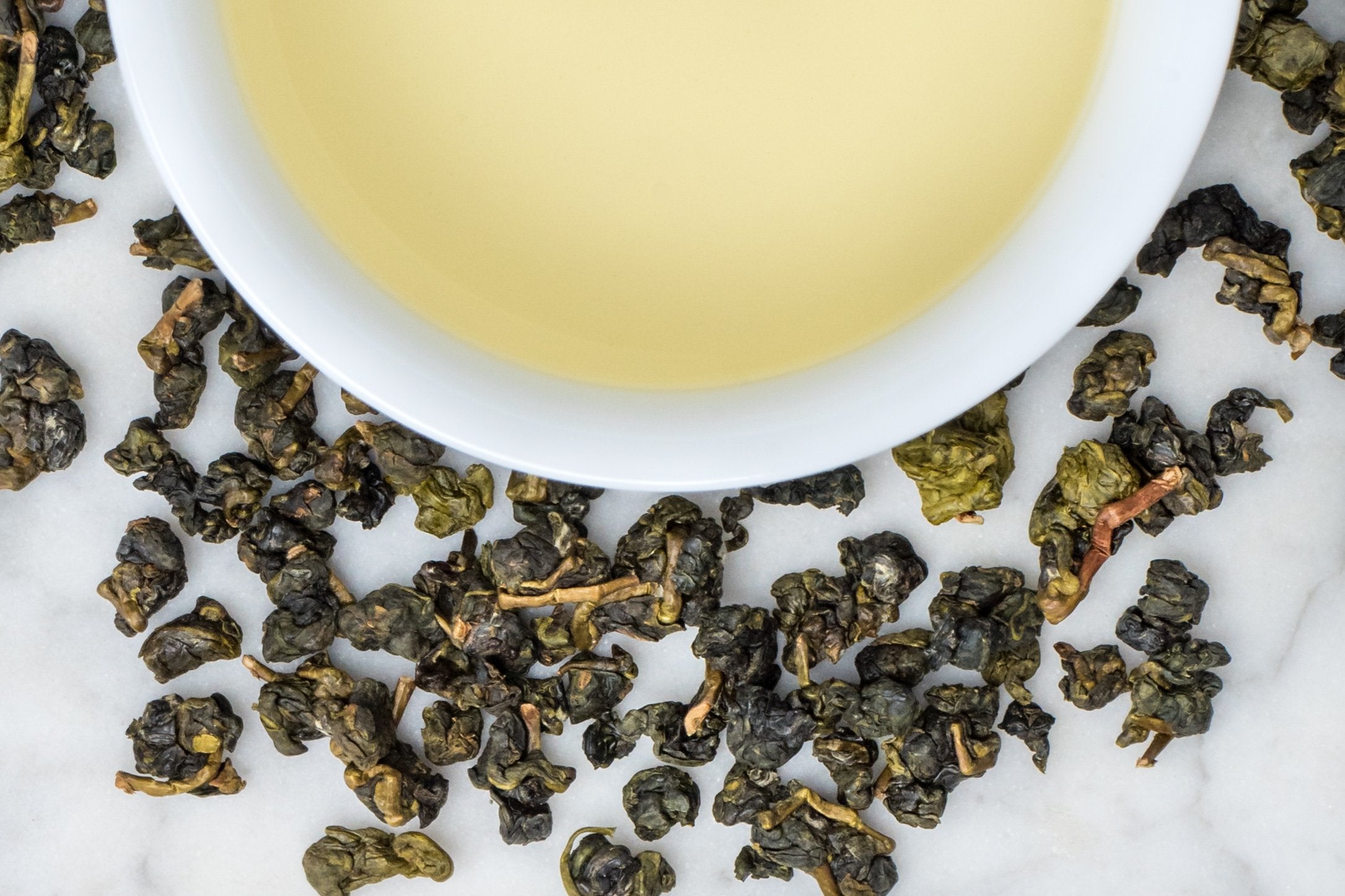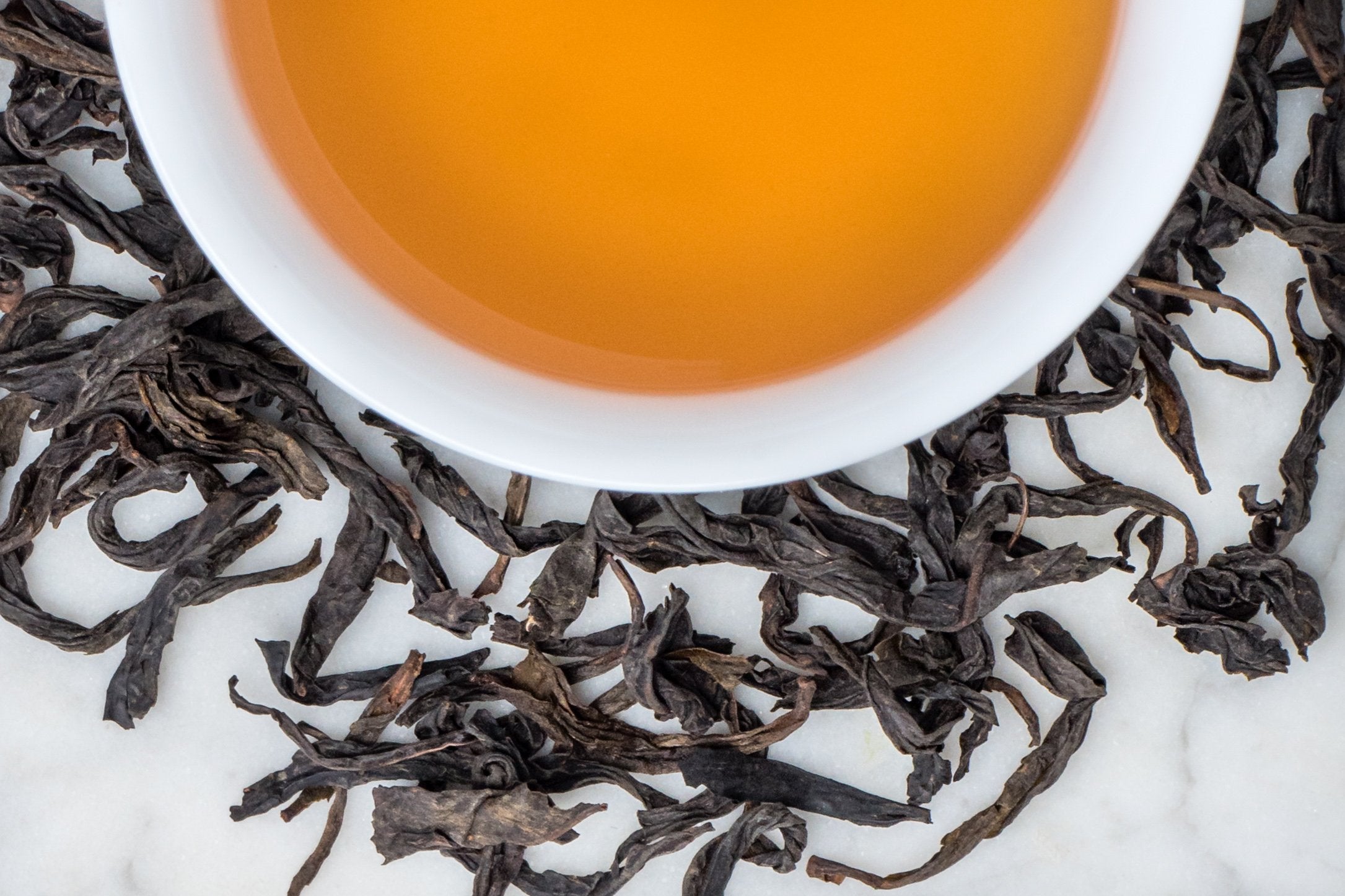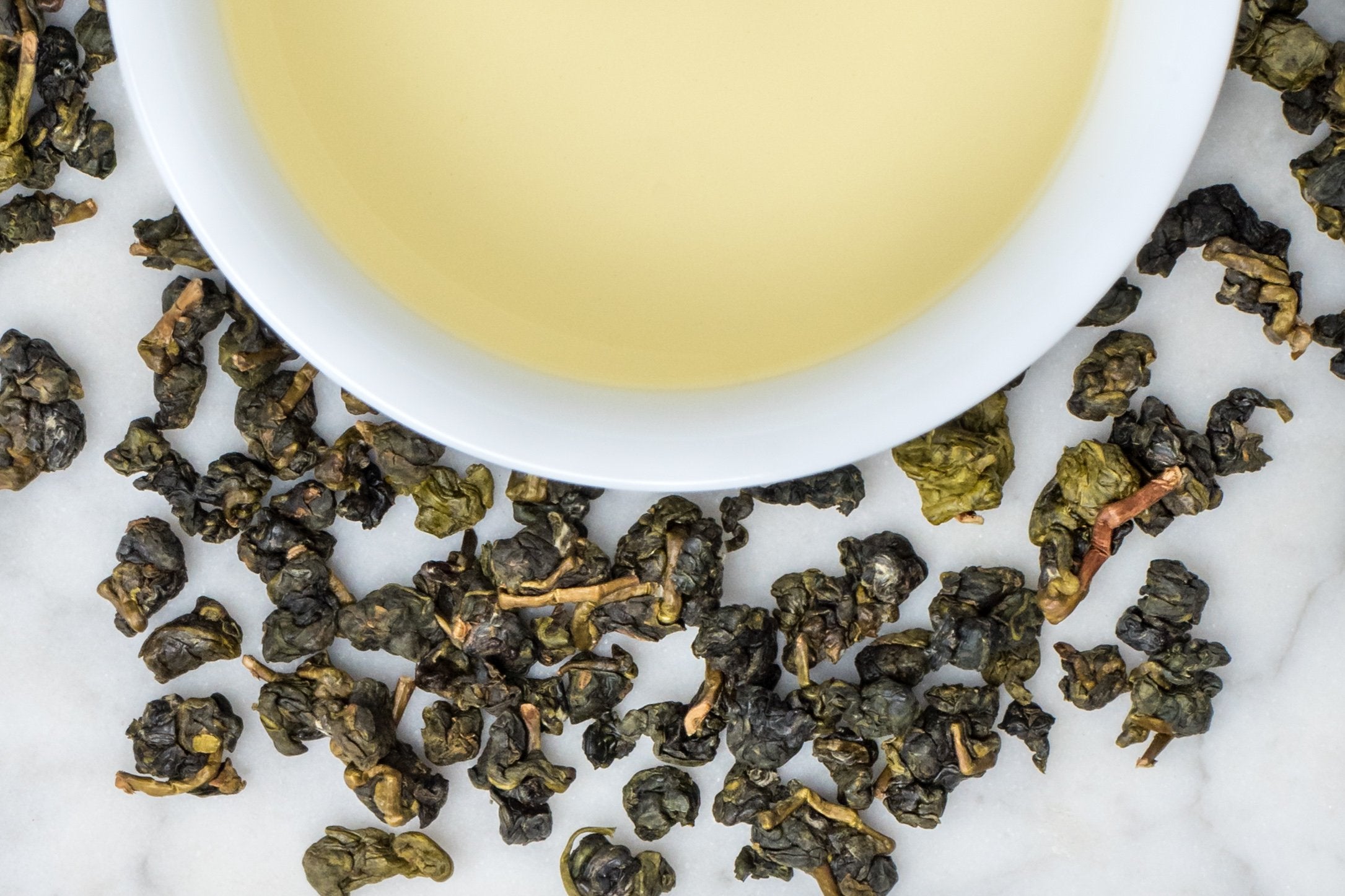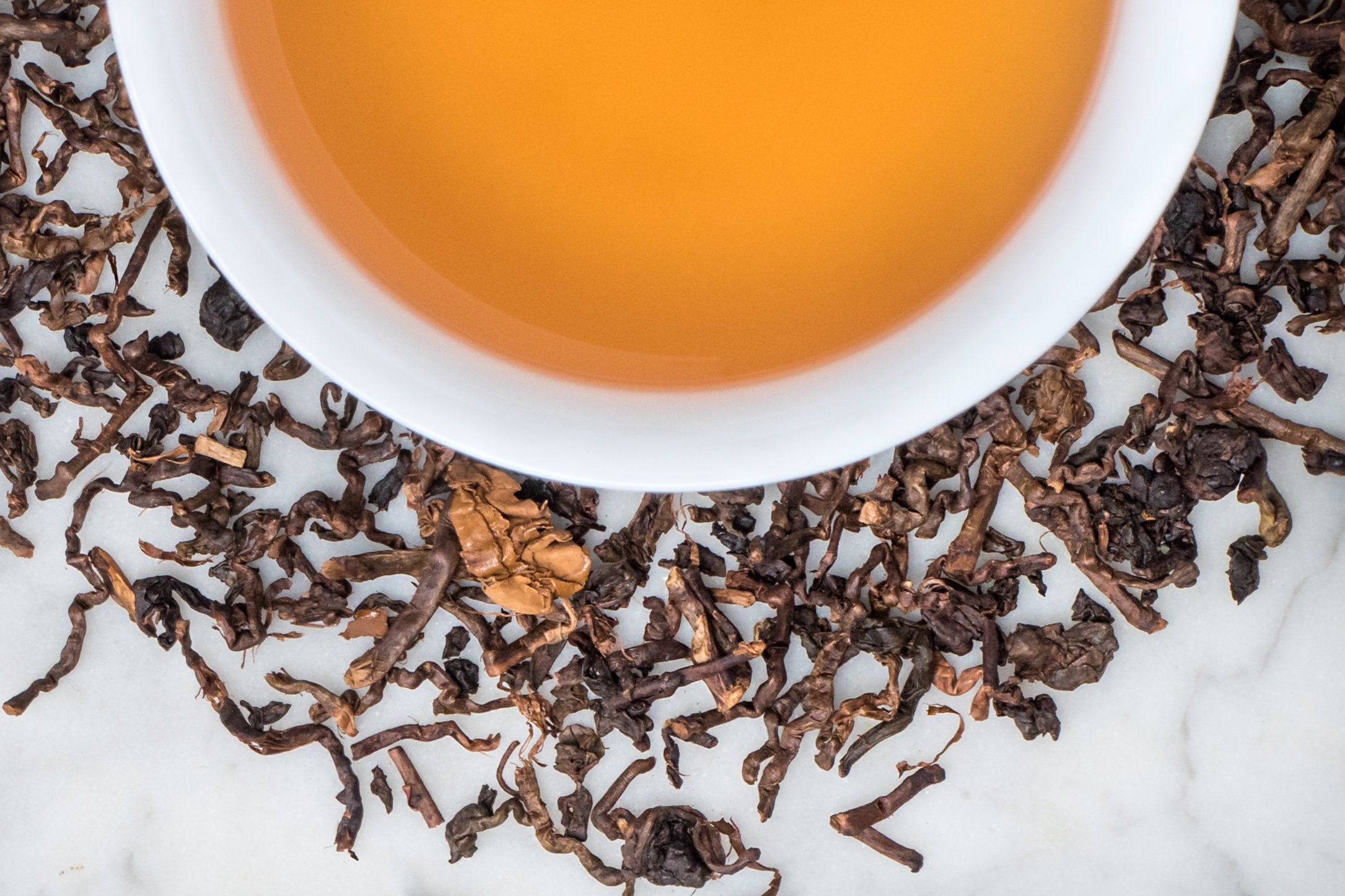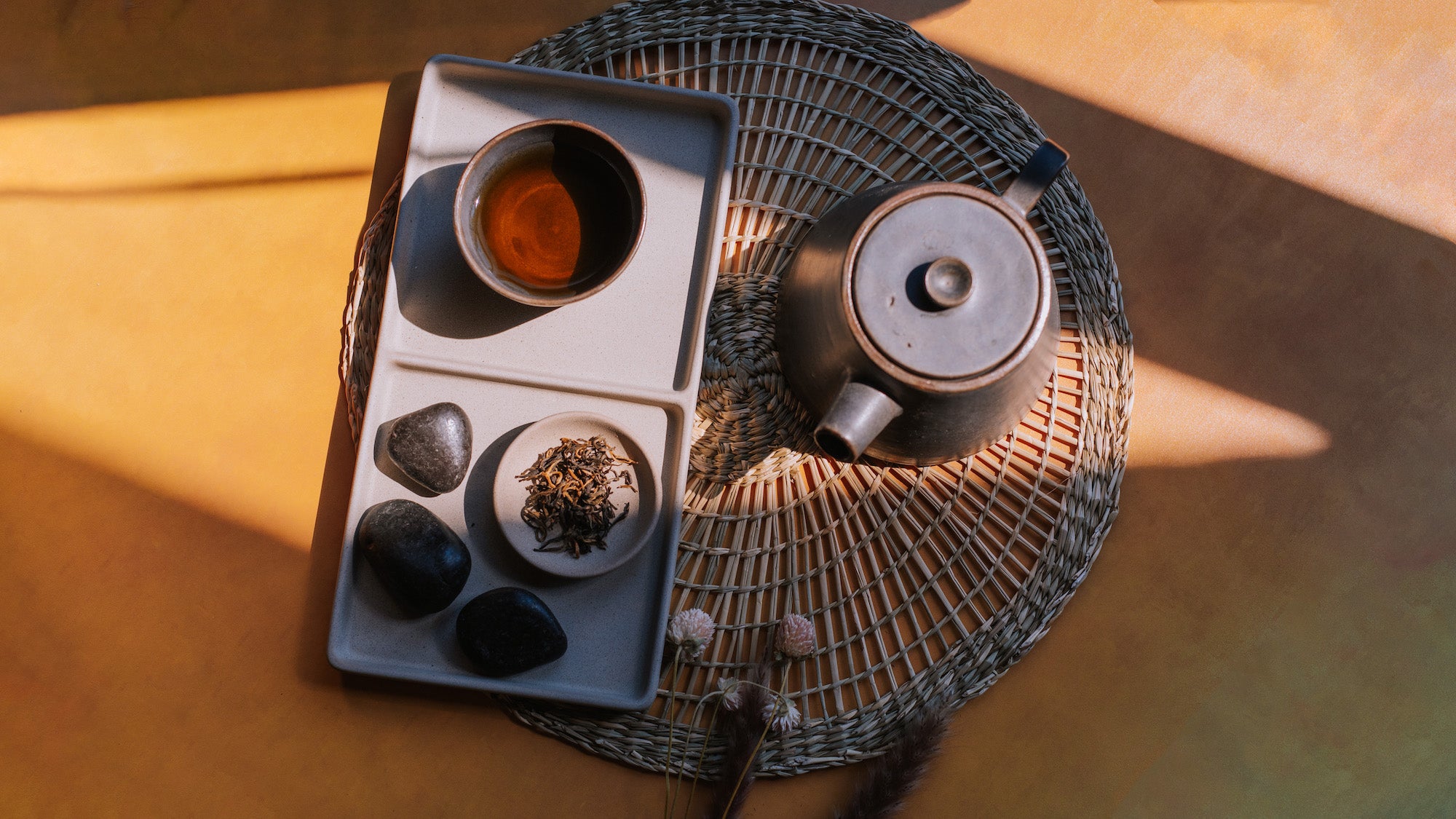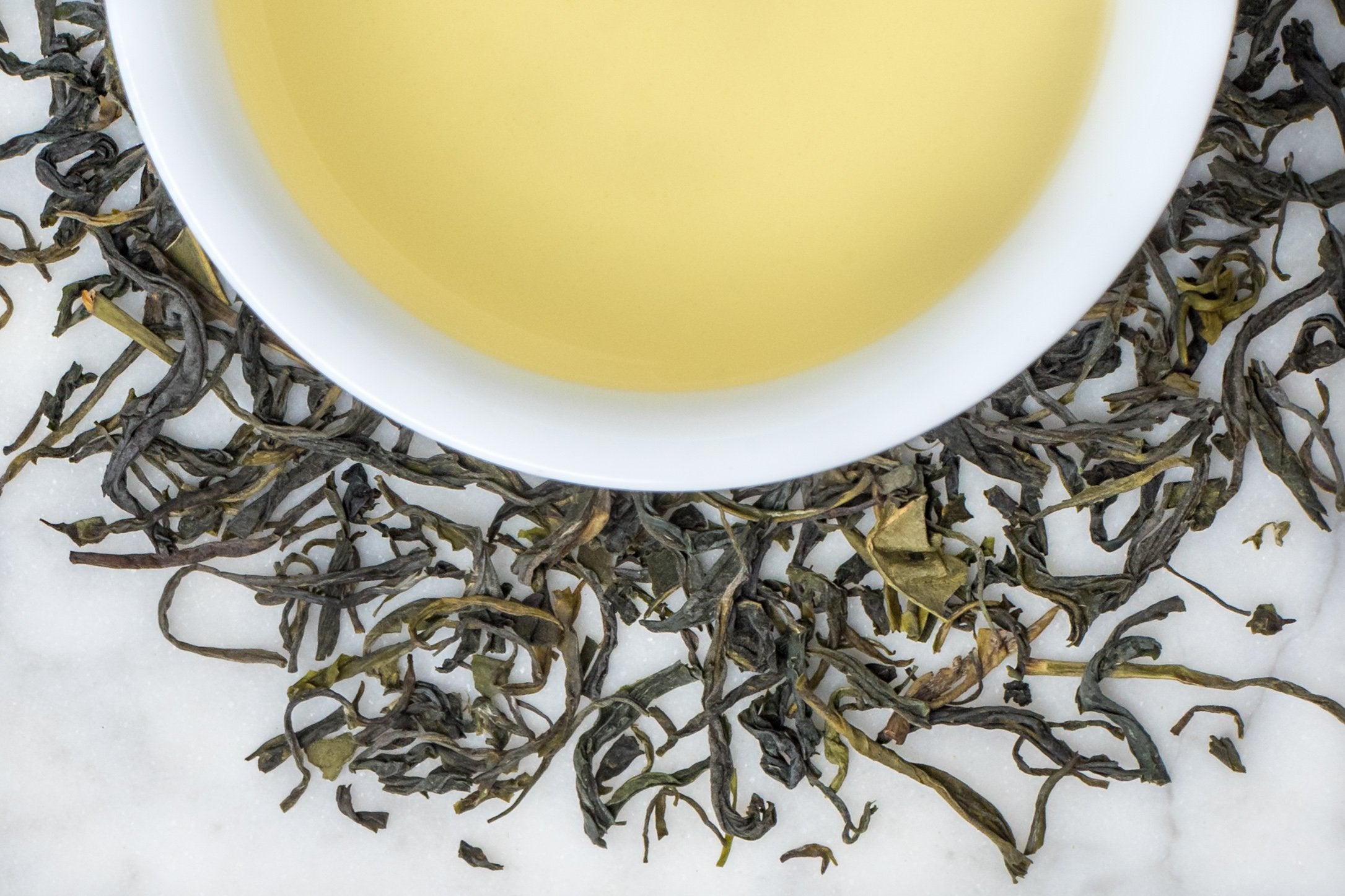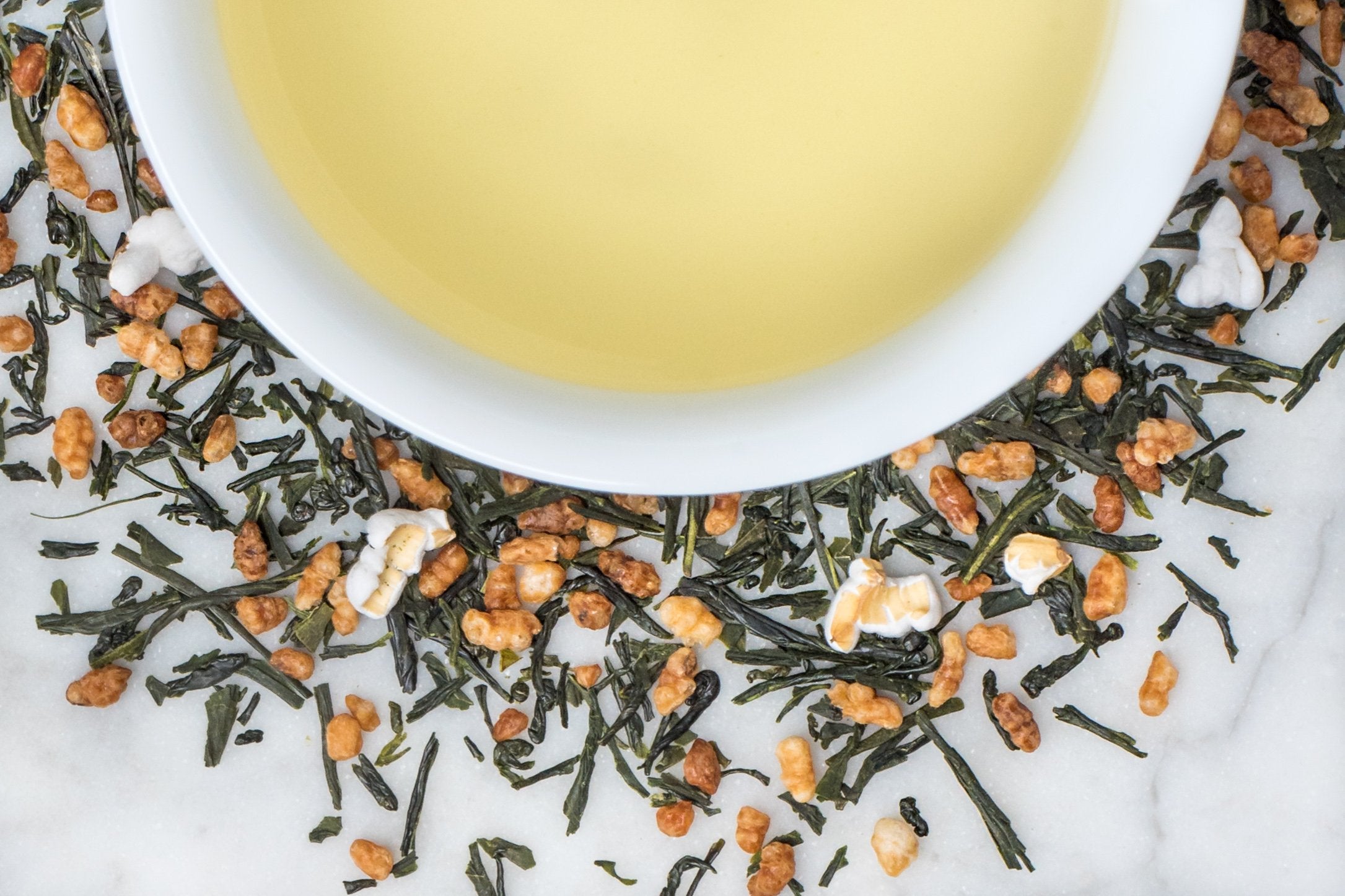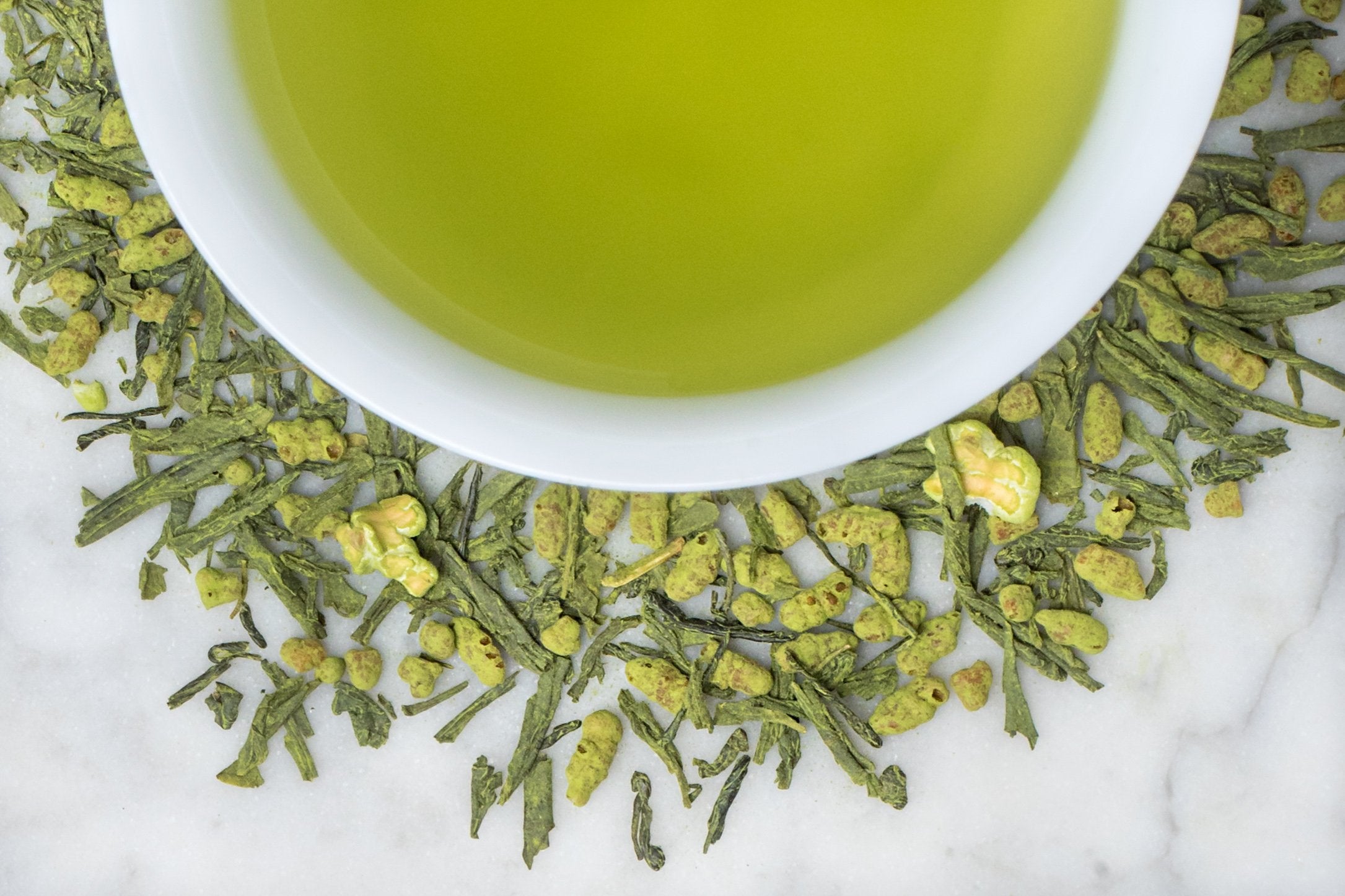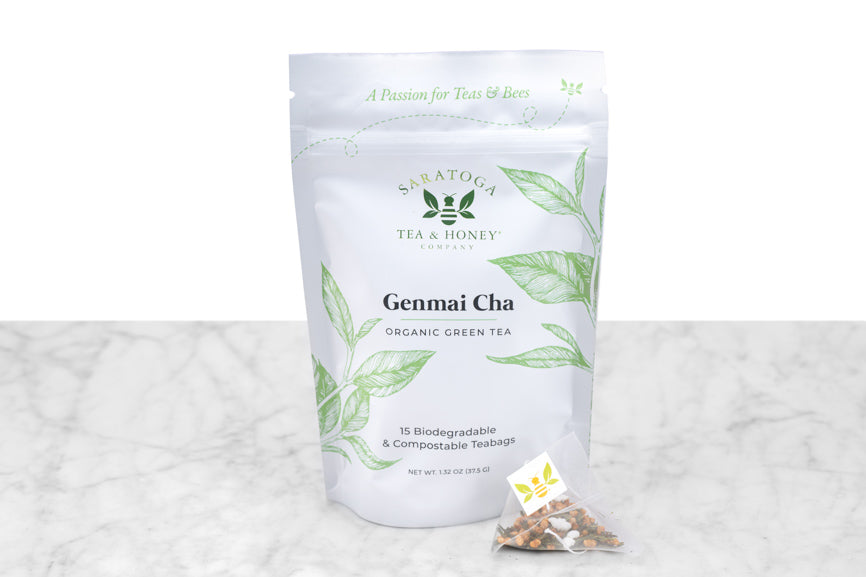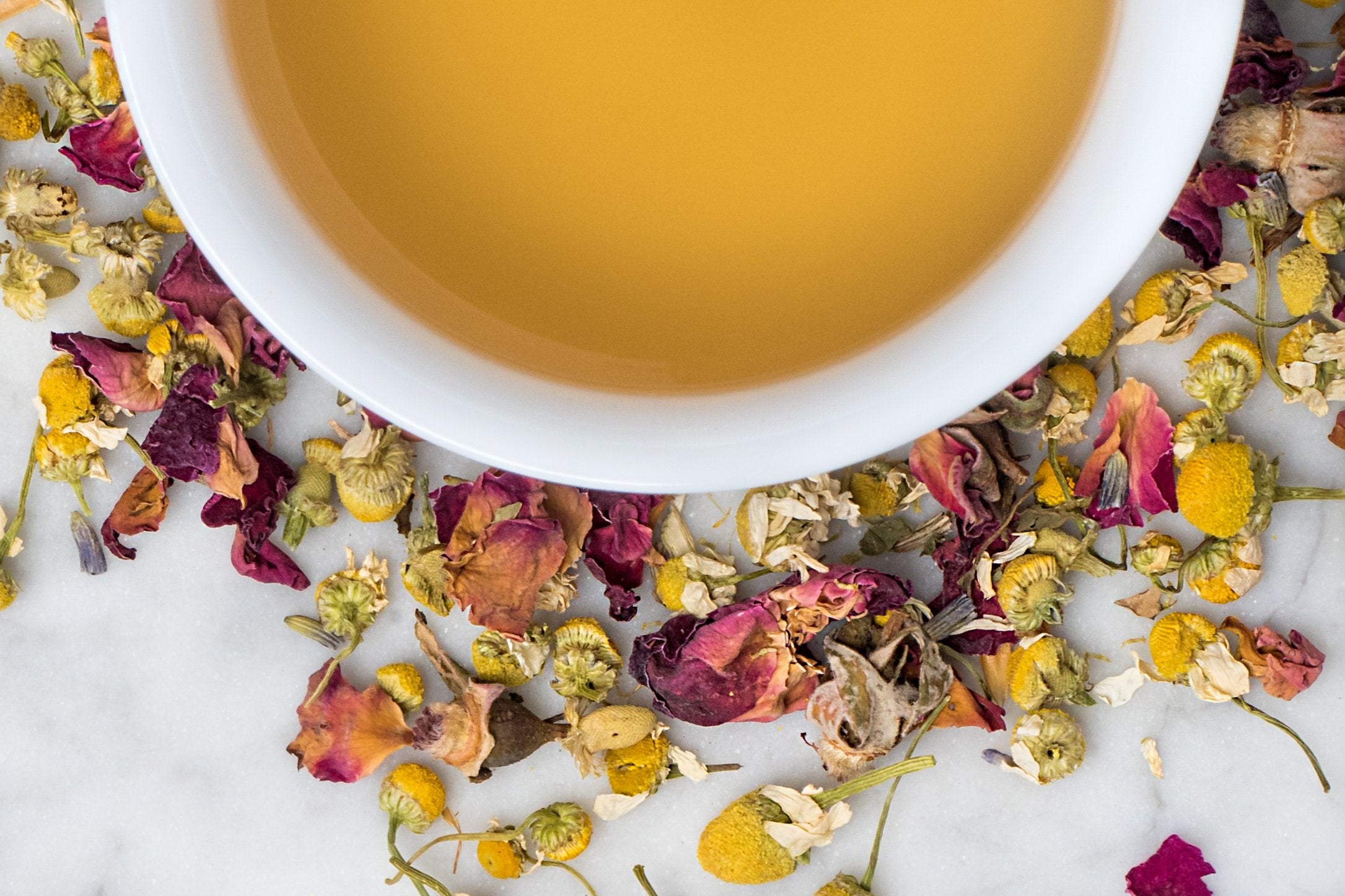A Relaxing Amino Acid
L-theanine & Tea
Unique to tea and proven to break the blood-brain barrier, what's so special about the amino acid L-theanine - and why is everyone talking about it?
Though the side-by-side stimulating and calming effects of tea have been appreciated anecdotally for centuries (many an old wife has been known to prescribe strong, sweet, hot tea for its restorative properties), modern science allows us to isolate and study the components of the tea leaf that cause this anecdotal evidence to be true. And while tea is undeniably good for you for many reasons, there’s one special amino acid that makes tea a powerful agent for stress relief and relaxed alertness: L-theanine.
Tea's Magic Ingredient
What is L-theanine?
L-theanine (γ-glutamylethylamide) is a nonproteinic amino acid found naturally - and almost exclusively - in tea. (L-theanine is also found in the edible bay boletes mushroom Xerocomus badius.) [8] L-theanine has been shown to have a calming effect on the mind in numerous studies and is one of the most interesting and desirable components of the tea (camellia sinensis) leaf.
L-thenanine is able to cross the blood-brain barrier, and its relaxing effects are observed as soon as 30 minutes after ingestion. [8] The relaxing effects of L-theanine consumption are proved by increased alpha wave activity in the brain, indicating relaxation in subjects. Increased alpha waves are interesting to scientists and tea drinkers alike because they not only indicate increased relaxation, but increased alert relaxation. Many of our customers who have made the transition from coffee to matcha may be familiar with this sense of extended, steady and calm alertness that comes with drinking tea (especially matcha) and makes tea such a wonderful choice for aiding focused work or even meditation.
L-theanine also modulates neurotransmitters (most notably by inhibiting glutamate release and increasing GABA levels) and enhances the release of glycine and dopamine. [7] As you may remember from our discussions of staff and customer favorite Gabacha oolong, GABA is the main inhibitory neurotransmitter in your brain. GABA acts as a stress reliever by inhibiting the transmission of excitatory chemical messages to your central nervous system - essentially GABA is an off switch for stress transmitters. Glutamate, on the other hand, is essentially your brain’s on-switch for stress and anxiety. As L-theanine simultaneously decreases the excitatory glutamate levels and increases the inhibitory GABA levels, it’s no wonder this amazing amino acid has become increasingly popular as an additive in sleep-aids in recent years.
Gabacha
Would a tea with any other amino acid taste as sweet?
What Else Does L-Theanine Contribute to Tea?
L-theanine and umami
There is quite a bit of prevailing wisdom that connects the taste of a food or beverage to its healthful benefits - in other words we’ve chosen to cultivate and eat foods that are good for us throughout human history because they also taste good or satisfy a craving that indicates a nutritional need. It’s very interesting, then that L-theanine, an amino acid unique to tea that promotes that oh-so-desirable state of alert relaxation, is the main contributor to the delightful taste or sensation of umami in tea.
The Japanese concept of umami is often referred to as the fifth basic taste (after salty, bitter, sweet, and sour) and we tend to imperfectly translate umami as savory in English. According to science, when you taste umami you are actually tasting the presence of protein. This is why you might describe the taste of umami as akin to savory, meaty, or brothy and why the sensation of umami usually includes an accompanying full or round mouthfeel (termed kokomi by the Japanese).
The effects of Caffeine & L-theanine
What Happens When You Combine Caffeine & L-theanine?
As we’ve discussed before, there’s something very special about caffeine in tea, and one of those special things is the interaction of caffeine and L-theanine in the body. Many studies have looked at the effects of L-theanine and caffeine on the body individually, so we know without doubt that caffeine is a stimulant and L-theanine is a relaxant. But what happens when you combine the two naturally occurring compounds in tea?
Well, something amazing happens: you get tea drunk!
Have you ever been tea drunk? Known as cha zui in Chinese, tea drunk is the alert yet calm and euphoric feeling you feel after drinking a lot of really good tea. Much of this feeling is attributed to the holy triumvirate of tea: L-theanine, caffeine, and catechin (notably ECGC). While each of these compounds has positive psychoactive effects on their own, combined they lead to four to six hours of focused and sustained energy without all the jitters from caffeine alone.
Caffeine, a stimulant, combats fatigue and those who drink coffee or other caffeinated drinks often report increased heart rate and feelings of jitteriness or anxiety. In tea, catechins and L-theanine help to mitigate the negative side-effects of caffeine. The catechin actually binds to the caffeine, making it more difficult for your body to break down, leading to what is essentially a slow release capsule of sustained energy. The catechin ECGC has also been shown to affect the endocannabinoid receptors in your brain, leading to calm, relaxed energy and increased sociability.
That said, L-theanine is the real star in this symbiotic trio. As a relaxant, L-theanine moderates the excitatory messages from the caffeine without completely blunting the caffeine’s ability to combat fatigue. Essentially, instead of cancelling each other out, the caffeine and L-theanine in tea work together to create something far greater than the sum of their parts: a state of alert and focused but relaxed energy that is sustained over a period of several hours.
L-Theanine in Tea
Which Teas Have the Most L-Theanine?
If you’re wondering which tea you should buy to get the most L-theanine possible, you’re not alone! Unfortunately we do not have an easy answer other than the obvious: matcha (more on that below). While studies indicate that overall, teas with less oxidation have more L-theanine (with post-fermented aged teas having almost no L-theanine content), the L-theanine content within tea categories varies widely. Some green teas are very high in L-theanine while others have less L-theanine than certain black teas, indicating that even oxidation is not a reliable indicator of L-theanine levels in your favorite cup. [3] Studies also show that steaming the leaves during processing lessens L-theanine content; from this we can infer that with the exception of matcha (which is consumed as a powder rather than an infusion), Chinese green teas are the most likely to contain high levels of L-theanine. (Learn more about how Japanese and Chinese processing of green teas differs >>)
The great news is that all tea has L-theanine, with the exception of pu erh (which, due to its post-fermented processing has little to no L-theanine). We can also infer that matcha will have the most soluble L-theanine, just as it has the most caffeine and antioxidants, because you are consuming the whole leaf in suspension rather than an infusion of the leaf. Most studies report that matcha as 20-40mg of L-theanine, as opposed to ~10mg of L-theanine in steeped green tea.
From $ 2.60
From $ 3.50
From $ 3.30
$ 12.50
L-theanine as a Supplement
Is L-theanine Good for Sleep & Relaxation?
Studies show that L-theanine promotes relaxation, but they also show that the relaxation promoted by L-theanine is a sense of alert calm. So, is L-theanine actually good for sleep?
The answer to this is, absolutely! But maybe not in the way you think. L-theanine is a popular additive in many sleep and relaxation aids, but we would not recommend having a cup of tea right before bed to get in your daily dose of L-theanine because your cup of tea is also going to come with a good bit of caffeine. L-theanine promotes relaxation without making you drowsy. So, if you’re already ready for sleep a little extra relaxation can go a long way. This is why L-theanine is often used in combination with melatonin in supplements - they work together to relax you and promote drowsiness. Drinking L-theanine as part of your cup (or cups) of tea earlier in the day may also promote calm and relaxation when it's time for you to go to sleep!
Gaba vs. L-theanine: Which is Better for Relaxation?
There are a lot of questions about what amino acid is best for sleep and relaxation. At this time, the clear winner is L-theanine, as studies have yet to clearly show that eating or drinking something with GABA actually allows the GABA to cross the blood-brain barrier. L-theanine on the other hand has been clearly demonstrated to cross the blood-brain barrier and begin relaxing you after as little as 30 minutes.
That being said, much anecdotal evidence from tea drinkers - particularly Gabacha connoisseurs - indicates that the GABA in Gabacha does promote relaxation. Whether this is placebo effect, the result of the L-theanine, or truly the extra GABA in Gabacha is something we will have to wait to find out!
Gabacha
Ashwagandha vs. L-theanine: Which is Better for Anxiety?
Ashwaganda is another popular supplement for combating stress and anxiety and promoting healthy sleep patterns. From our perspective, it’s not so much a question of ashwaganda vs. L-theanine as it is a question of what are you looking for? L-theanine immediately helps to relax the brain and promote focus, while ashwagandha builds up in your system over time and helps your body adapt to stress, with its ability to promote restful sleep as an added bonus.
One of our favorite tisanes for stress and anxiety is A Quiet Mind, which combines chamomile, rose, lavender, passion flower, ashwagandha, and valerian for a calming infusion that promotes both immediate and long-term stress relief, mindfulness, and more restful sleep.
A Quiet Mind
Sources
[1] Baba, Y., Inagaki, S., Nakagawa, S., Kaneko, T., Kobayashi, M., & Takihara, T. (2021). Effects of l-Theanine on Cognitive Function in Middle-Aged and Older Subjects: A Randomized Placebo-Controlled Study. Journal of medicinal food, 24(4), 333–341. https://doi.org/10.1089/jmf.2020.4803
[2] Boros, K., Jedlinszki, N., & Csupor, D. (2016). Theanine and Caffeine Content of Infusions Prepared from Commercial Tea Samples. Pharmacognosy magazine, 12(45), 75–79. https://doi.org/10.4103/0973-1296.176061
[3] Einöther, S. J., Martens, V. E., Rycroft, J. A., & De Bruin, E. A. (2010). L-theanine and caffeine improve task switching but not intersensory attention or subjective alertness. Appetite, 54(2), 406–409. https://doi.org/10.1016/j.appet.2010.01.003
[4] Hidese, S., Ogawa, S., Ota, M., Ishida, I., Yasukawa, Z., Ozeki, M., & Kunugi, H. (2019). Effects of L-Theanine Administration on Stress-Related Symptoms and Cognitive Functions in Healthy Adults: A Randomized Controlled Trial. Nutrients, 11(10), 2362. https://doi.org/10.3390/nu11102362
[5] Kim, S., Jo, K., Hong, K. B., Han, S. H., & Suh, H. J. (2019). GABA and l-theanine mixture decreases sleep latency and improves NREM sleep. Pharmaceutical biology, 57(1), 65–73. https://doi.org/10.1080/13880209.2018.1557698
[6] Kimura, K., Ozeki, M., Juneja, L. R., & Ohira, H. (2007). L-Theanine reduces psychological and physiological stress responses. Biological psychology, 74(1), 39-45.
[7] Liwen Wang, Margaret Brennan, Shiming Li, Hui Zhao, Klaus W. Lange, Charles Brennan, How does the tea L-theanine buffer stress and anxiety, Food Science and Human Wellness, Volume 11, Issue 3, 2022, Pages 467-475, ISSN 2213-4530, https://doi.org/10.1016/j.fshw.2021.12.004.
[8] Nobre, A. C., Rao, A., & Owen, G. N. (2008). L-theanine, a natural constituent in tea, and its effect on mental state. Asia Pacific journal of clinical nutrition, 17.

